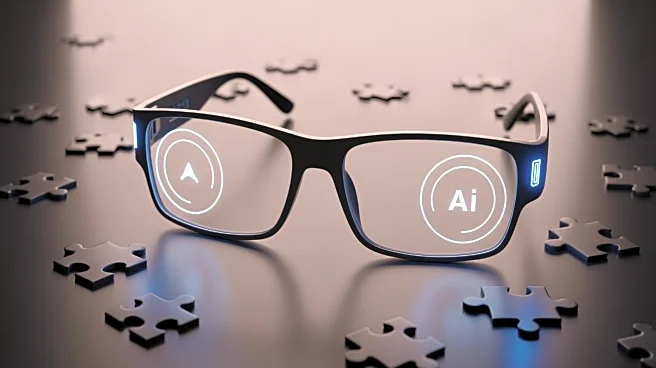What's Happening?
During a public earnings call on July 30, 2025, Meta CEO Mark Zuckerberg made a statement suggesting that individuals without AI-enabled glasses could face significant cognitive disadvantages in the future.
This remark has sparked widespread debate among tech leaders, unions, and investors, highlighting the potential impact of AI wearables on the workforce. The statement was linked to rising sales of smart glasses and significant losses at Reality Labs, Meta's division focused on augmented reality (AR) and virtual reality (VR) technologies. The comment has raised concerns about hardware-driven inequality, as workers may be expected to purchase these devices to remain competitive in the job market.
Why It's Important?
The introduction of AI-enabled glasses as a potential requirement in the workplace could have profound implications for both employees and employers. While some investors view this as a validation of the product market, labor advocates warn of privacy, cost, and surveillance issues. The potential for a two-tier workforce, where those with access to AI wearables have an advantage, raises ethical and legal questions. Companies may need to address consent, data retention, and reasonable accommodation under existing laws, such as the Americans with Disabilities Act (ADA). The debate underscores the tension between technological advancement and equitable access in the workplace.
What's Next?
As companies consider integrating AI glasses into their operations, they may face pressure to subsidize these devices or establish policies regarding their use. Employers will need to navigate legal and privacy concerns, potentially leading to new expense policies or regulatory interventions. The reaction from labor groups and tech spokespeople suggests that policy debates and HR guidance will be crucial in shaping the future of AI wearables in the workplace. The outcome could range from company-paid access to restrictions on mandatory use, depending on stakeholder responses.
Beyond the Headlines
The broader implications of AI-enabled glasses extend beyond immediate workplace concerns. The technology could redefine productivity tools and training methods, influencing how businesses operate and compete. The potential for increased surveillance and data collection raises ethical questions about employee privacy and autonomy. As the technology becomes more mainstream, it may also impact consumer behavior and societal norms, challenging existing frameworks for technology adoption and regulation.









